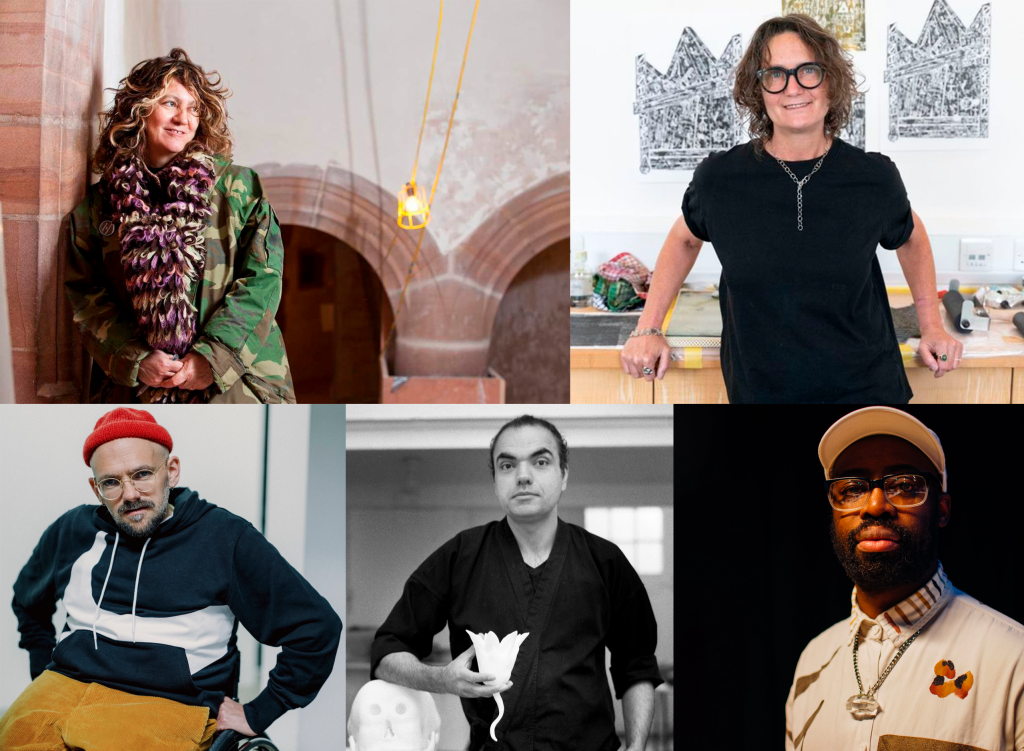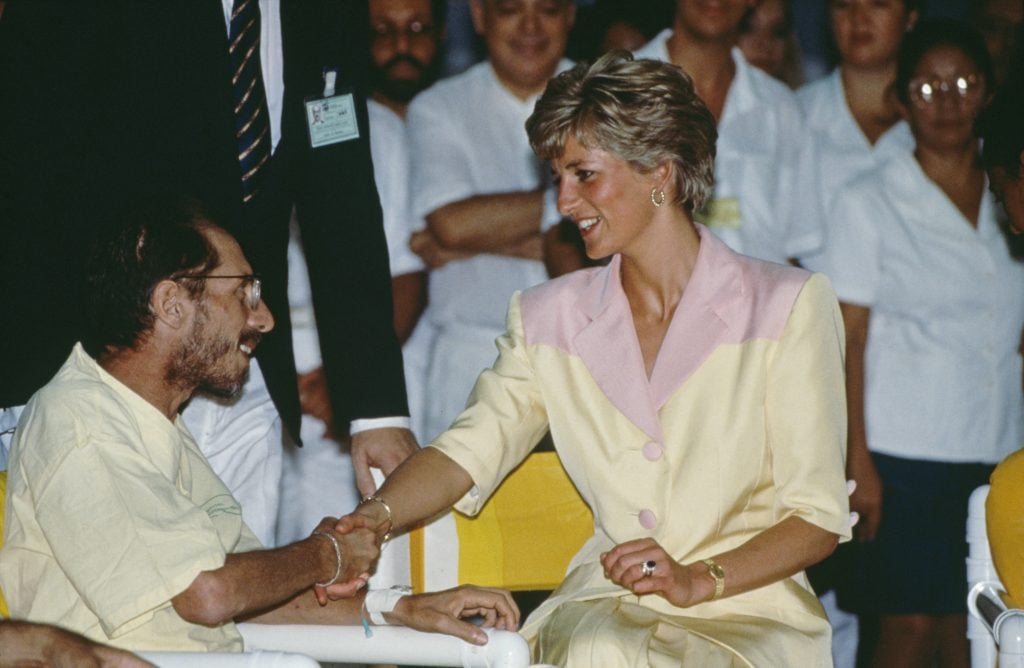Art World
The First Permanent HIV/AIDS Memorial in London Names Shortlisted Artists
The memorial will be located near Middlesex Hospital, where Princess Diana opened the U.K.'s first AIDS unit in 1987.

The memorial will be located near Middlesex Hospital, where Princess Diana opened the U.K.'s first AIDS unit in 1987.

Jo Lawson-Tancred

Ryan Gander, Anya Gallaccio, Harold Offeh, Shahpour Pouyan, and Diana Puntar have been named as the five shortlisted artists to design London’s very first permanent HIV/AIDS memorial. The public monument will be located near Middlesex Hospital, where Princess Diana opened the U.K.’s first AIDS unit in 1987. It will be unveiled in 2026.
The project, backed by the charity AIDS Memory UK (AMUK), has been allocated £130,000 ($165,000) by the city’s mayor Sadiq Khan from the Commission for Diversity in the Public Realm. The winning proposal will be selected by a panel of 11 judges that includes physician Jane Anderson, currently chair of The National AIDS Trust; AMUK founder Ash Kotak, art historian Satish Padiyar, artist Rana Begum, theater director Neil Bartlett, and writers Jack Guinness and Olivia Laing.

Diana, Princess of Wales visiting patients suffering from AIDS at the Hospital Universidade in Rio de Janeiro, Brazil, 25th April 1991. Photo by Tim Graham Photo Library via Getty Images.
The location has special significance because Princess Diana is remembered for her efforts to fight stigma around HIV when the disease was still poorly understood. She regularly visited the unit, one time remarking: “HIV does not make people dangerous to know. You can shake their hands and give them a hug. Heaven knows they need it. What’s more, you can share their homes, their workplaces, and their playgrounds and toys.”
Installation artist Anya Gallaccio, who was shortlisted for the Turner Prize in 2003, predominantly works on a large scale with organic materials that foreground the natural processes of decay. Ryan Gander was awarded an OBE in 2017 and is recognized for wry, conceptual works in film, installation, performance, and sculpture to surprising affect.
London-based Diana Puntar, who is originally from New York, uses sculpture and immersive installation that explore and interrupt the systems that govern society. The participatory nature of Harold Offeh’s performance, photography and video works invite reflection for audiences and often seek to educate. The conceptual ceramicist Shahpour Pouyan’s contemplative pieces carry cross-cultural references and have been shown at the V&A and the British Museum.
“A memorial in the U.K. would go some way to recognize the enormity of the HIV /AIDS pandemic,” said activist Winnie Ssanyu Sseruma, who is on AMUK’s advisory board. “And the activism of people living with HIV from all walks of life, whose resilience needs to be celebrated.”
AMUK is a charity dedicated to ensuring those that lost their lives to the HIV/AIDS epidemic are commemorated, as well as fighting to bring about the end to HIV transmission and AIDS deaths around the world.